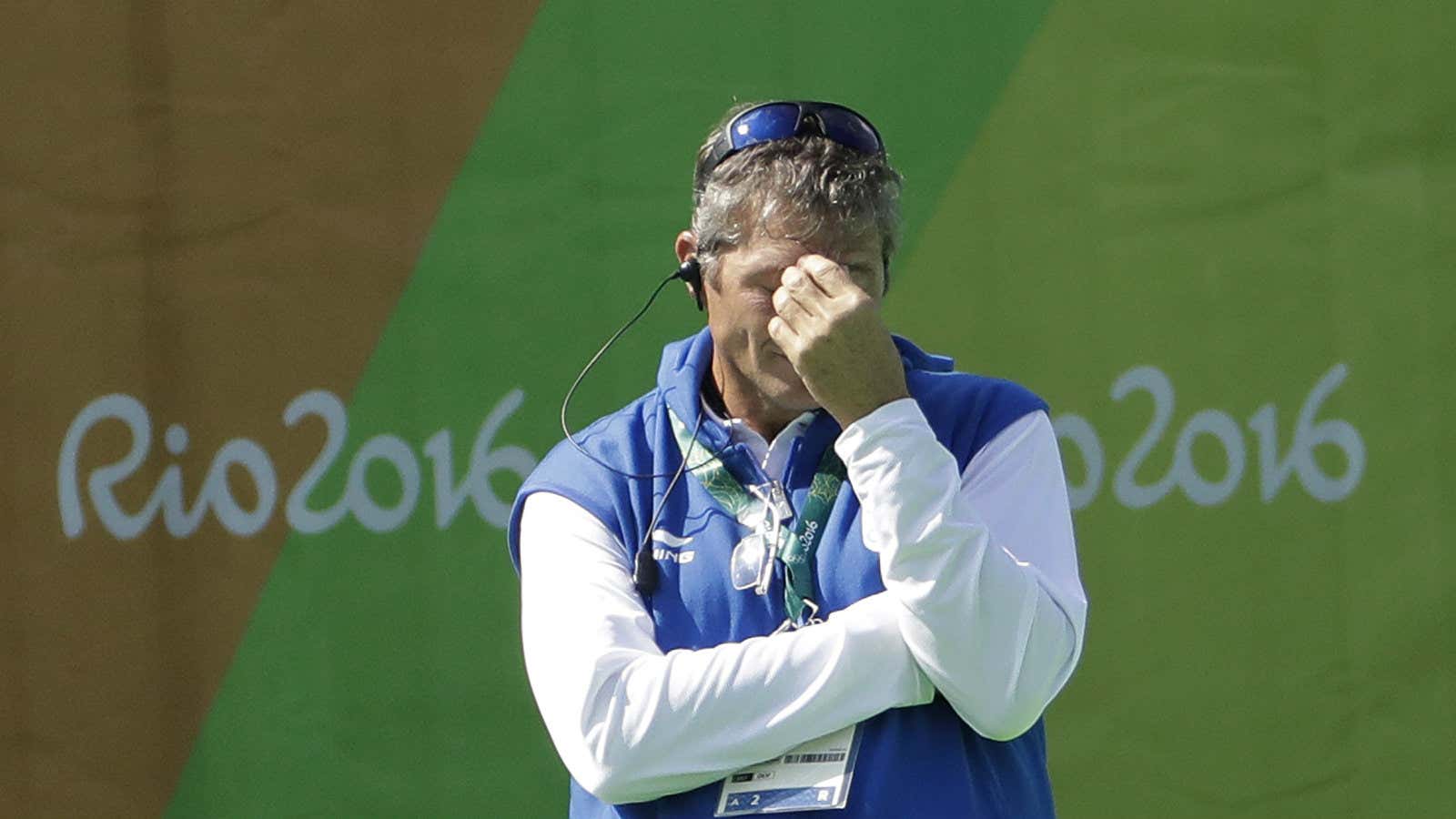It’s been tough going for the Indian athletes in Rio de Janeiro.
So far India has only won a single medal at the Olympics: Sakshi Malik’s bronze in women’s wrestling. And though this is the largest-ever contingent the country has sent to the quadrennial sporting gala, only a few athletes now remain in the fray. Among them are badminton star P. V. Sindhu and a few runners.
For comparison, in the 2012 London Olympics, India took home six medals, its best-ever performance.
Yet this year’s on-field struggles seem trivial compared to what India’s athletes have faced off the arena.
Even after having made it to the event, the athletes—some of whom have dedicated their lives to their chosen fields in the face of untold hardships—haven’t got their due in terms of treatment, respect, and facilities.
To top it off, the abominable behaviour of senior politicians claiming to be accompanying or encouraging them has shamed both them and the country.
Take, for instance, India’s sports minister himself. Vijay Goel’s gaffes on social media—mixing up athletes’ names and photos and misspelling the name of India’s star gymnast, Dipa Karmakar—have gone viral. What’s worse, Goel came close to losing his Olympics accreditation after the organizers complained about his entourage’s “aggressive and rude” behaviour. Forget corrective action, Goel doesn’t seem to have even realised the bizarreness of his howlers or hinted at any remorse over his team’s unruliness.
Meanwhile, a nine-member team representing the state of Haryana arrived in Rio “to encourage the Haryana players.” However, the group, led by the state sports minister Anil Vij, has been noticeably absent at key events—even those involving their state’s athletes. Instead they were found sight-seeing and frolicking on Rio’s beaches.
Ironically, many of these delegates flew business class to the Brazilian city, unlike the athletes themselves. Sprinter Dutee Chand, for instance, endured a 36-hour flight in economy class on a plane that had managers and other delegates travelling business class.
“If players are treated like this, what kind of performance will we give in (the) Olympics?” Chand asked. She failed to qualify for the 100-meter semi-finals.
Dipa Karmakar, whose amazing performance took her to the women’s vault finals, had her own share of woes.
Initially, the gymnast’s physiotherapist wasn’t allowed to travel with her—it was dubbed “wasteful” by the Sports Authority of India. The officials jumped into action only when she made history by qualifying for the finals; the physiotherapist was rushed to Brazil soon after.
Incidentally, the Indian team’s chief medical officer in Rio isn’t an expert in sports medicine; instead, he’s a trained radiologist.
Shameful Independence Day
On Aug.15, India’s Independence Day, the country’s ministry of youth affairs and sports promised a grand reception for the athletes hosted by the Indian embassy at the Olympian Reunion Centre. The athletes skipped dinner at the Games village expecting a grand meal but all they were served were drinks and peanuts. Yes, peanuts!
Not winning medals is one thing, but the humiliation that these sportsmen and women were subjected to by their country’s officials may not be something they can get over any time soon.
